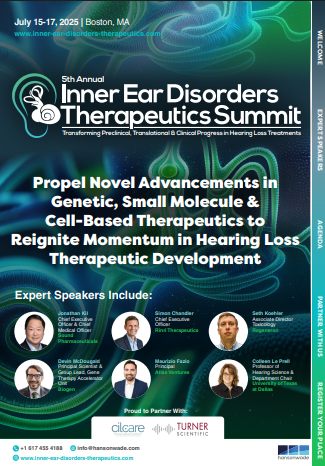FULL EVENT GUIDE
Download our full event guide to see all our event features including:
Hear from 17+ Expert Speakers, including Regeneron and Sound Pharmaceuticals
Attend our highlight Investment panel and ask your questions directly to big Pharma and VC’s to help secure your next investment
Discover how to create an excellent preclinical program, and seamlessly translate into clinical work
Explore clinical work and how best to develop clinical trials & regulatory endpoints

Having trouble downloading? Click here to request a copy of the agenda
Companies Attending:


